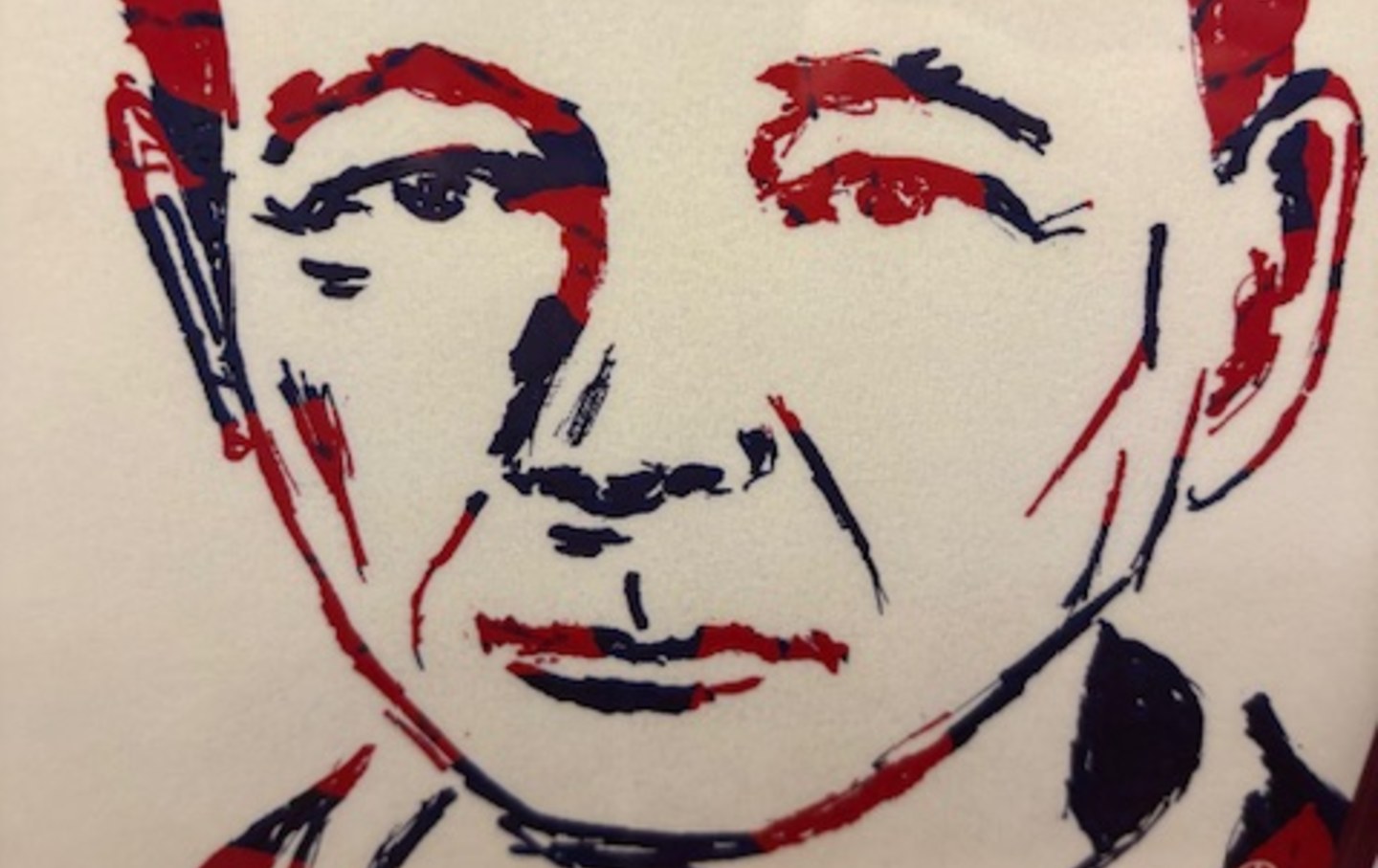November 24, 2025
From prison, the eminent critic of Putin and the war calls for the conflict to end.
An illustration of Boris Kagarlitsky, part of a traveling political prisoner exhibit organized by the Zone of Freedom organization.
Boris Kagarlitsky was first arrested in July 2023 in connection with a since-deleted YouTube video about the 2022 Crimea Bridge explosion. His case reveals the cruelty and absurdity at work.
Kagarlitsky is perhaps Russia’s most prominent leftist intellectual, a Marxist critic of both Western imperialism and Putin’s domestic authoritarianism.
After spending nearly 5 months in pretrial detention 1,000 kilometers from Moscow, Kagarlitsky was convicted, but released with a fine of 609,000 rubles.
Supporters raised the money in less than an hour. Paying the fine, however, was complicated by the matter of Kagarlitsky having already been designated as both a “foreign agent” and a “terrorist or extremist” (common terms leveled against anti-war advocates remaining in Russia) and was therefore prohibited by law from conducting financial transactions.
The state then appealed his December release due to the fine not having been paid. Eight weeks later, the military court reversed the December verdict and imposed the harsher prison sentence of 5 years.
Kagarlitsky is now serving his sentence at Penal Colony No. 4 in Torzhok, 155 kilometers from Moscow. On November 8, he was sent to solitary confinement for three days; no reasons have been given. On November 20, lawyer Yulia Kuznetsova appealed to the head of the penal colony with a request to hospitalize Kagarlitsky: according to Kuznetsova, the 66-year-old prisoner’s health had deteriorated.
Current Issue
Kagarlitsky is one of Russia’s best-known political prisoners. There are others, much less visible, including quite a few labor rights advocates, environmentalists, ethnic and racial minority defenders about whom nobody writes or speaks. According to the UN Human Rights Committee in Russia, there are still more than 2000 political prisoners incarcerated in Russia, at least 120 of them “in imminent danger due to their critical health, age or disability.”
Kagarlitsky has demanded that he not be included on any exchanges. “I have stated several times and I repeat again,” Kagarlitsky insisted, “that I do not wish to participate in such exchanges… I see no point or benefit for myself in emigrating. If I had wanted to leave the country, I would have done so myself.”
Just this past weekend, Kagarlitsky released these comments on the Trump administration’s 28-point plan to end the war in Ukraine:
The twenty-eight points Trump offered, as they are currently published, look quite strange. Many aspects are written unclearly, vaguely, ambiguously, and rather contradictorily. The only thing that is described very thoroughly and in detail is the financial part. It is quite clear that Donald Trump has remained true to himself here: everything concerning money is the only important and significant thing in this situation.
It is clear that all these documents will be processed and settled in the near future; there will be further negotiations where something will be clarified and explained. The document that results in the end will most likely differ significantly from what we read today.
But if we take today’s document, the main conclusion that somehow comes to me is this: Ukraine looks like the losing side, and Russia in this situation does not look like the winning side. The only winner in this war, according to Trump, is the United States of America.
And yet the most important thing is that the conflict must end. However it happens, if people stop being killed, if cities stop being destroyed, if the sides stop exchanging blows, that will already be good news. Therefore, we still have to hope that this, even if very raw, very strange, and sometimes even unpleasant document, will nevertheless become a milestone on the path to peace.
Boris Kagarlitsky, from Penal Colony No. 4
Boris Kagarlitsky
Boris Kagarlitsky, born in Moscow in 1958, was a dissident and political prisoner in the USSR under Brezhnev, then a deputy to Moscow city council (arrested again in 1993 under Yeltsin). Since 2007, he has run Institute for Globalization Studies and Social Movements in Moscow, a leading Russian leftist think tank. He is the editor of the online magazine Rabkor and an author of numerous books, of which the two most recent to appear in English are Empire of the Periphery (Pluto) and From Empires to Imperialism (Routledge).

